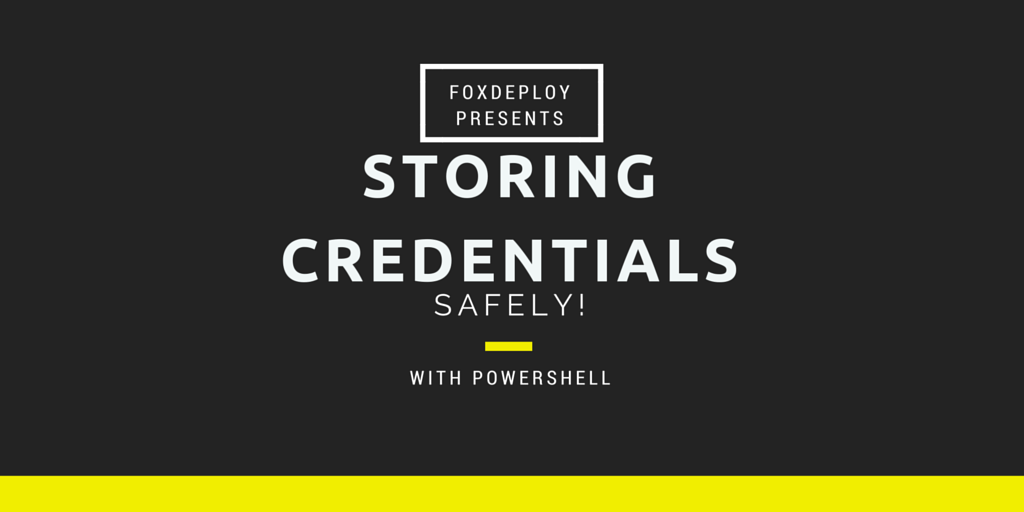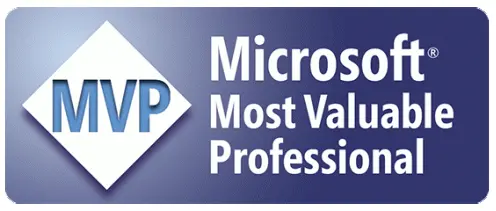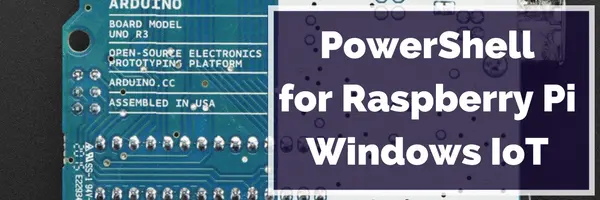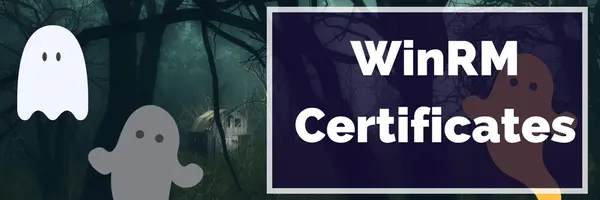Safely storing credentials and other things with PowerShell

Hey guys,
This post is mostly going to be me sharing an answer I wrote on StackOverflow, about a technique I use in my PowerShell modules on Github to safely store credentials, and things like REST Credentials. This is something I’ve had on my blogging ‘To-Do’ list in OneNote for a while now, so it feels nice to get it written out.
I hope you like it, feel free to comment if you think I’m wrong!
The Original Question
My Take on Safely Storing objects on a machine with PowerShell
Since I’ve written a number of PowerShell Modules which interact with REST APIs on the web, I’ve had to tackle this problem before. The technique I liked to use involves storing the object within the user’s local credential store, as seen in my PSReddit PowerShell Module.
First, to export your password in an encrypted state. We need to do this using both the ConvertTo and ConvertFrom cmdlets.
Why both cmdlets?
ConvertTo-SecureString makes our plaintext into an Encrypted Object, but we can’t export that. We then use ConvertFrom-SecureString to turn the encrypted object back into encrypted text, which we can export.
I’m going to start with my very secure password of ham.
$password = "ham"
$password | ConvertTo-SecureString -AsPlainText -Force |
ConvertFrom-SecureString | Export-CliXML $Mypath\Export.ps1xml
At this point, I’ve got a file on disk which is encrypted. If someone logs on to the machine they can’t decrypt it, only I can. If someone copies it off of the machine, they still can’t decrypt it. Only me, only here.
How do we decrypt the text?
Now, assuming we want to get the same plain text back out to use late, we can add this to our PowerShell Profile, you can import your password like so.
$pass = Import-CliXML $Mypath\Export.ps1xml | ConvertTo-SecureString
Get-DecryptedValue -inputObj $pass -name password
$password
>"ham"
This will create a variable called $password containing your password. The decryption depends on this function, so be sure it’s in your profile: Get-DecryptedValue.
Function Get-DecryptedValue{ param($inputObj,$name) $Ptr = [System.Runtime.InteropServices.Marshal]::SecureStringToCoTaskMemUnicode($inputObj) $result = [System.Runtime.InteropServices.Marshal]::PtrToStringUni($Ptr) [System.Runtime.InteropServices.Marshal]::ZeroFreeCoTaskMemUnicode($Ptr) New-Variable -Scope Global -Name $name -Value $result -PassThru -Force }
And that’s it! If anyone knows who originally wrote the Get-DecryptedValue cmdlet, let me know in the comments and I’ll give them full credit!`












